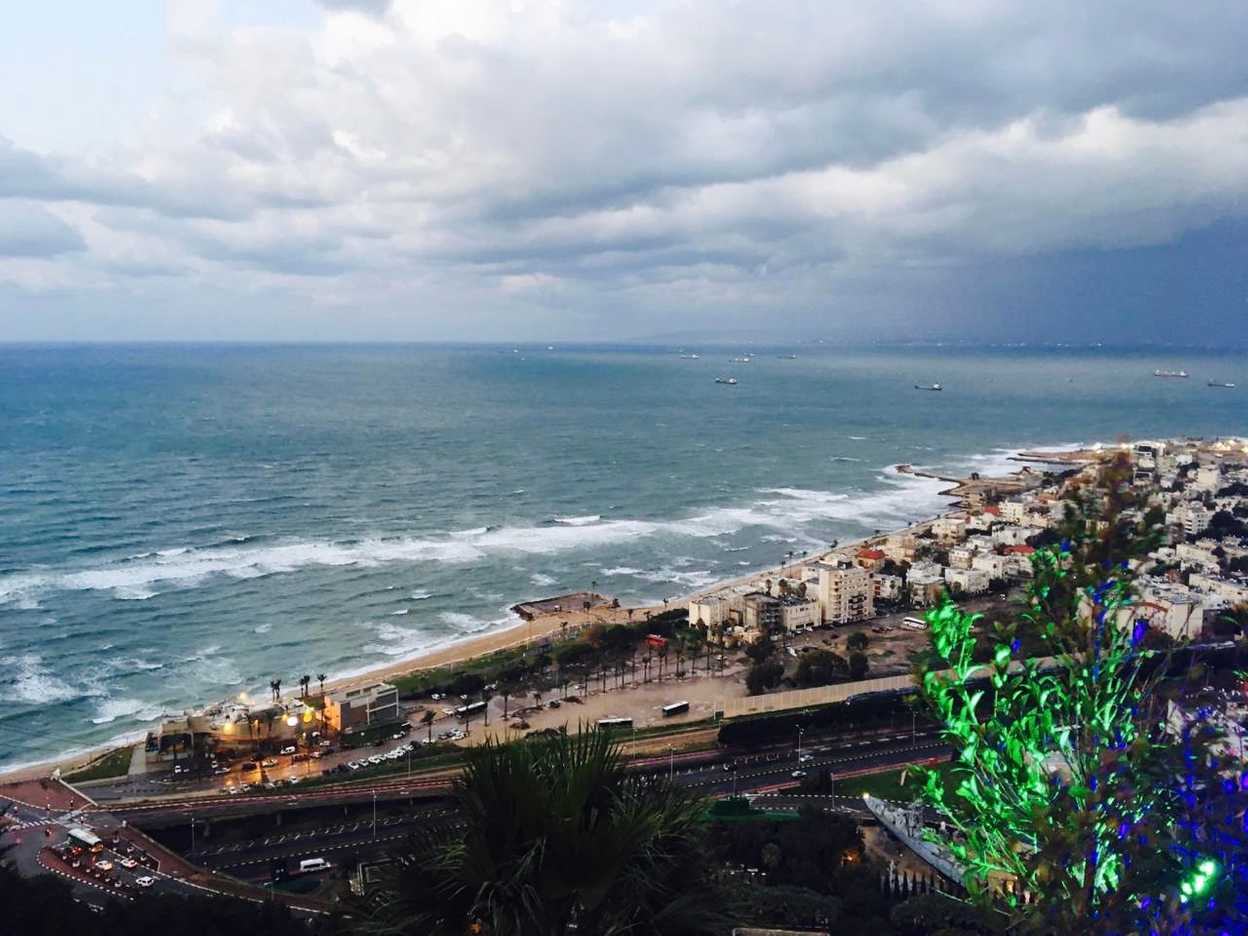I returned to Haifa. I have never been before. A sound within me now whispers: “You returned on behalf of your exiled people.”
From the pale January sky, rain started to pour over the vast green forests of Mount Carmel, the raging Mediterranean waters and, sandwiched in between, the city of Haifa. Along with the raindrops, I arrived to the heart of the city for a one night visit.
Our long and tiresome modern history as Palestinians has been a pressing example of how, through exile and decades of refugeehood and statelessness, geography has become central to existence and nationhood. Haifa, a city now in northwestern Israel, is deeply rooted in the collective memory of the Palestinians, and one of the reminders of the history and political existence they once had as a nation. Because of colonial boundaries and two generations later, most of us are still barred even from visiting. We are denied our legitimate connection to our ancestral lands— a land in which we are natives.
By iron and blood, this reality has been imposed on us ever since 1948, known to us as the year of the Nakba, or the catastrophe. Throughout the 1947-1948 war in Palestine, more than 700,000 Palestinians were driven out from what then became the State of Israel. Around 60,000 of them fled from Haifa. In other terms, the natives were ethnically cleansed, replaced by Jewish settlers coming largely from Europe. Overnight, the exiled Palestinians became refugees in neighboring countries, with UN resolutions calling for their return or compensation, but to no avail.
During my short time in Haifa, I had the chance to visit and wander between ruins of Palestinian buildings and former homes in the “Wadi Salib” neigbhourhood, now uninhabited and under the threat of demolition and final erasure by the Israeli authority at any time.
The ruins seem out of place, surrounded by modern establishments and Israeli skyscrapers in the near vicinity. At that hour, the stark difference symbolized to me the abrupt and forced stop to one lively and ongoing history, and the beginning of a sharply different one on the very same land.
It is a dismal scene to the visitor, one that can induce feelings of sadness, perhaps more so for a Palestinian who sees the 1948 Catastrophe as his own. I imagined myself as the little child in Mahmoud Darwish’s poem, The Eternity of Cactus, where he is in conversation with his father while fleeing their house in Palestine:
– Where are you taking me, father?
Where the wind takes us, my son . . .
– Who will live in the house after us, father?
It will remain as it is, as it has always been, my son!
You will grow up, my son, and tell those who inherit their guns
the story of the blood upon the iron . . .
– Why did you leave the horse alone?
To keep the house company, my son
Houses die when their inhabitants are gone . . .
إلى أين تأخذني يا أبي؟ إلى جهة الريح يا ولدي
ـ ومن يسكن البيت من بعدنا يا أبي ؟ سيبقى على حاله مثلما كان يا ولدي ! سوف تكبر يا ابني، وتروي لمن يرثون بنادقهم سيرة الدم فوق الحديدِ …
ـ* لماذا تركت الحصان وحيداً؟ لكي يؤنس البيت ، يا ولدي ، فالبيوت تموت إذا غاب سكانها
The ruins are witness of a past that has proceeded to become our status quo. I did not want to be consumed by grief. I consciously looked for meaning. To live in the past would be similar to an attempt to live in one of these deserted ruins of houses, as seen in the photos below. Yet, and just as importantly I think, the past has to be recognized.
With a heavy heart and an inferno in my mind, I searched for the missing past of my people.





As I was leaving the scene, I turned towards my friend and companion for the day, and read lines from the Syrian poet Adonis’s Arabic poem, Time:
The tatters of history in my throat
on my face the victim's scars
how unavailing has language become how narrow the alphabet's
doors.
"مِزَقُ التّاريخِ في حُنجرتي**
وعلى وجهي أماراتُ الضّحيّهْ
ما أَمَرَّ اللّغةَ الآنَ
وما أضيقَ بابَ الأبجديّه."
*أبد الصبار لمحمود درويش
**من قصيدة الوقت لأدونيس
Photo credits: Rabeea Eid
